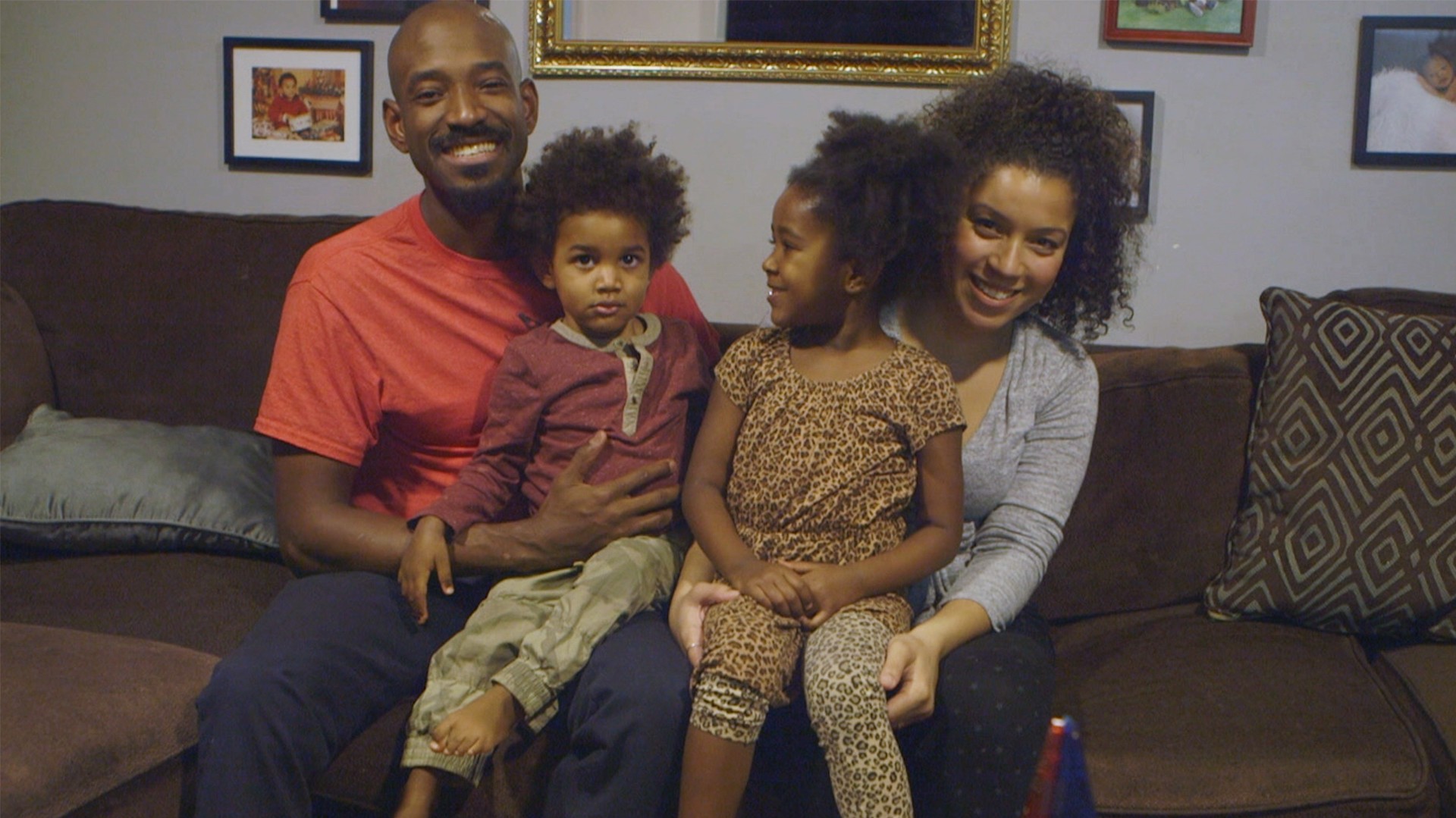Sol de Zuasnabar Brebbia / Getty Images
There were no obvious signs I was miscarrying. I didn't bleed profusely or double over in pain. The only thing I noticed that was out of the ordinary was a single cramp and a tiny spot of blood on my underwear. "Come in and get checked this afternoon," the nurse told me when I called. "But I'm sure the babies are fine."It was my third pregnancy, and I was carrying three babies: three babies with heartbeats, who had waved to us at my last ultrasound. I was just shy of ten weeks pregnant with triplets, already beginning to show, and as I drove to the maternal-fetal medicine specialist's office, I tried to reassure myself that the odds of losing a baby after seeing the heartbeat were slim.Since the rise in early ultrasounds, the frequency of so-called vanishing twins has also increased: Experts estimate that vanishing twin syndrome occurs in 21 to 30 percent of all multifetal pregnancies. Still, like any miscarriage, the majority of those vanishing twins are lost before they develop a heartbeat. The risk of losing a baby decreases dramatically with each week of pregnancy after six weeks, and I had made it beyond the danger zone.I thought about calling my husband and asking him to meet me at the doctor's office, but it seemed ridiculous for one spot of blood. I had three other children, a nine-year-old and seven-year-old twins. I'd had a placental abruption with my prior twin pregnancy, with blood gushing down my legs when I stood up, and those babies had still lived. I refused to give into the fear that was threatening to choke me so I went to the appointment alone, but I found myself rehearsing in my head what I would tell people later—after my miscarriage had been confirmed.The ultrasound technician was upbeat and cheerful, and we made small talk as she squirted the gel on my belly. In a moment, the image flashed on the screen: three babies, two heartbeats. One frozen while the others wiggled and bounced. Her smile froze, and she turned the screen away from me as she dug the wand deeper into my stomach, coming at it from every angle, looking for the heartbeat I knew she'd never find.
More From Tonic:
I don't remember who told me my baby was dead; all I remember is sobbing for what seemed like decades but was probably only a little while. I sobbed as she tried to console me, and I sobbed when my doctor came in with his kindly manner and sober tone. When I left the office and called my husband, I sobbed so much that he offered to come and pick me up because he was afraid I was too upset to drive. I sobbed for the baby we only got to know as Baby B, and for the tiny blue cloth diaper in the nursery drawer, one of three tiny diapers for three tiny babies.My pregnancy had been high-risk from the start due to my chronic health problems and prior history of placental abruption, but now I was on lockdown. My doctor assured me it was unlikely that my other babies would die, but I knew it had been unlikely that any of them would die in their ninth week of gestation. I followed his orders and stayed in bed, afraid of risking the lives of my remaining two babies.I conceived my babies through IVF, and I knew I was lucky to have any at all. But my gratitude for the two babies in my belly warred with the devastation I felt over the loss of Baby B. As much as I tried to focus on my pregnancy, all I could see was that tiny, lifeless body. I was angry at my loss, and I struggled to share my feelings with people who couldn't understand what it was like to lose one baby out of three. But no one seemed to understand.Deborah Simmons, a psychologist at Partners in Healing Minneapolis who works primarily with families who have lost a baby, says her patients struggle with blasé reactions to their loss from family and friends who tell them they're "lucky" to still be pregnant with another baby. "People will insist that the grieving parent of a vanishing twin 'happy up' and focus on the remaining baby," she says. "I liken this situation to someone who is undergoing chemotherapy. 'Hey, your tumor is smaller! You're happy now and not worried, right?' The difference is that a person with cancer gets empathy and interest. Parents who have undergone a [multiple] pregnancy loss get little."Jessica*, a nurse from Colorado, experienced the same lack of sympathy when she lost one of her twins late in the first trimester of her pregnancy. "People kept saying 'at least you have one.' But I wanted them both," she says. "When our baby died, I cared about that baby. I didn't even think about the other one, who grew up to be my beautiful strong daughter."Like Jessica, I too became consumed by the loss of Baby B. The more that people around me brushed off my loss, or assumed I was fine, the more it seemed to hurt. In retrospect, some of my pain was connected to what felt like an erasure of my baby's existence. Because Baby B had been a triplet, my remaining babies suddenly became twins. It felt like my baby had never existed for anyone but me. "When people have twins today, I want to be a part of that conversation," Jessica says. "I want to say, 'I had twins, too.'"During this pregnancy, I had ultrasounds at least once or twice per week, and until the very end I could still see the tiny outline of what had once been Baby B on the screen. I tried not to look at it, and to focus on my living babies, but even after my daughters were born, I constantly felt the shadow of the baby I'd lost. When people came up to me to ask about my twins in stores, I wanted to scream at them that my daughters were triplets, not twins. Every time I spoke about my "twins," it felt like a betrayal to Baby B.My struggle to balance my loss with my living daughters after their birth isn't rare but it can take different forms among different people. "Everyone is different. If they have done some healing, and can have space to allow joy for their living child [after the birth], it can be a beautiful thing," says Crystal Clancy, a reproductive mental health counselor in Burnsville, Minnesota. "On the other hand, having a new baby is such a distraction that it can delay the grieving process by allowing parents to avoid those feelings. Some parents also feel guilty for feeling happy about the new baby, telling themselves that it means they are 'forgetting' about their other baby."My daughters are nine years old, and the intensity of my grief is just a memory now. But it haunted me through my pregnancy and much of their early lives. That, too, is common among parents who lose one of their twins or triplets, Simmons says. "Joy and sorrow are part of this pregnancy and the remaining baby's and the parents' lives. There is guilt about being joyful about the baby who lives; there is grief about the baby whom they will not know and raise," says Simmons. "That grief may be not be relieved, to some degree, until another baby is comes."It never occurred to me to get help with my grief, but the loss of Baby B haunted me until I had another set of twins three years later. It was only by having another baby that I was able to finally put Baby B to rest. But there will always be a tiny piece of me that grieves the baby I never got to mother.*Source prefers to use a pseudonym.Read This Next: Supreme Court Nominee Apparently Supports Pregnancy Discrimination
Advertisement
Advertisement
More From Tonic:

I don't remember who told me my baby was dead; all I remember is sobbing for what seemed like decades but was probably only a little while. I sobbed as she tried to console me, and I sobbed when my doctor came in with his kindly manner and sober tone. When I left the office and called my husband, I sobbed so much that he offered to come and pick me up because he was afraid I was too upset to drive. I sobbed for the baby we only got to know as Baby B, and for the tiny blue cloth diaper in the nursery drawer, one of three tiny diapers for three tiny babies.My pregnancy had been high-risk from the start due to my chronic health problems and prior history of placental abruption, but now I was on lockdown. My doctor assured me it was unlikely that my other babies would die, but I knew it had been unlikely that any of them would die in their ninth week of gestation. I followed his orders and stayed in bed, afraid of risking the lives of my remaining two babies.I conceived my babies through IVF, and I knew I was lucky to have any at all. But my gratitude for the two babies in my belly warred with the devastation I felt over the loss of Baby B. As much as I tried to focus on my pregnancy, all I could see was that tiny, lifeless body. I was angry at my loss, and I struggled to share my feelings with people who couldn't understand what it was like to lose one baby out of three. But no one seemed to understand.
Advertisement
Advertisement
